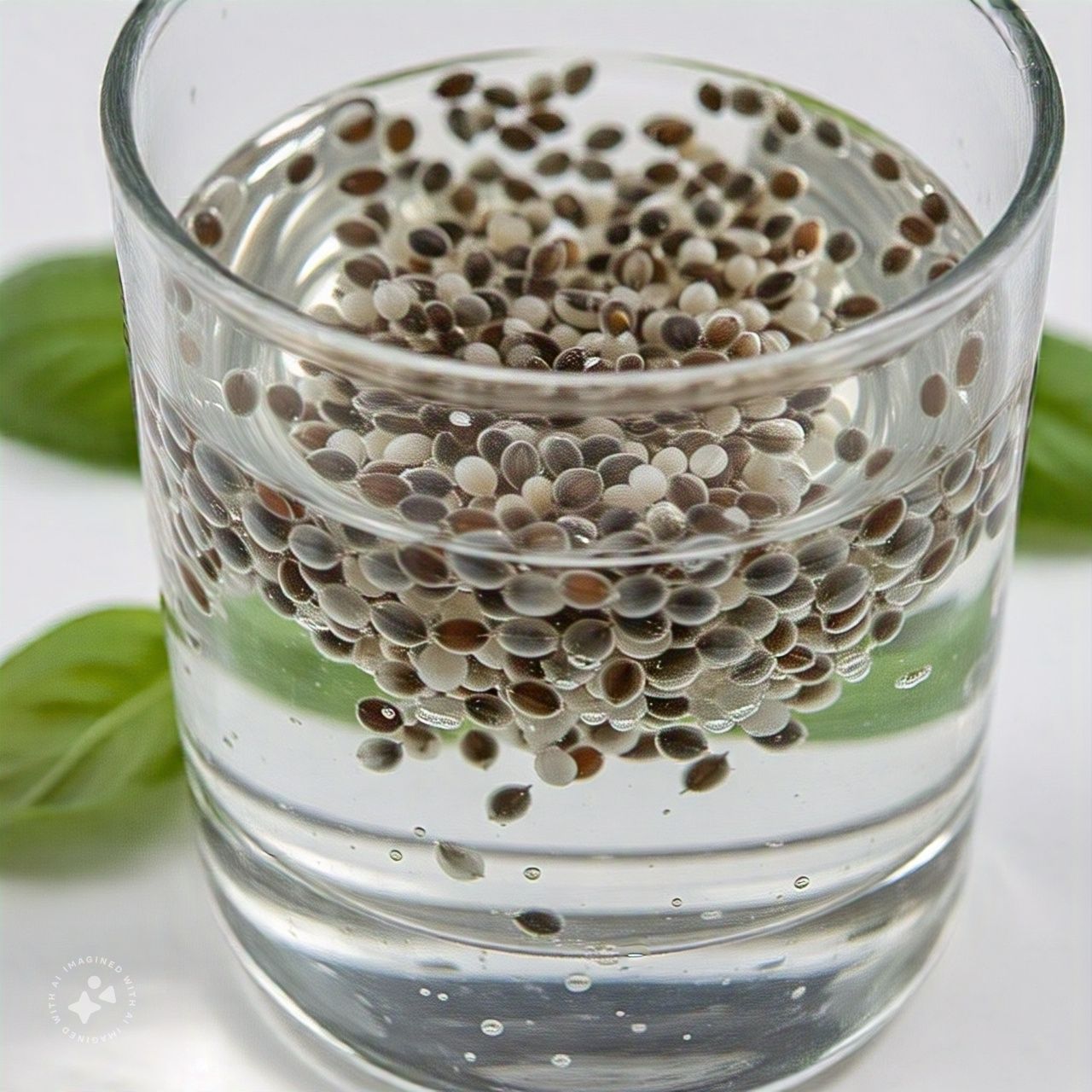Basil seeds, also known as Sabja seeds or Tukmaria, are tiny black seeds derived from the sweet basil plant (Ocimum basilicum). These nutrient-dense seeds are widely used for their health benefits and culinary versatility.
Nutritional Value and Health Benefits
Why Basil Seeds Are a Superfood
Basil seeds are packed with essential nutrients:
-
Rich in Fiber: Promotes digestive health and aids in weight management.
-
Omega-3 Fatty Acids: Supports heart and brain health.
-
Protein: Builds and repairs body tissues.
-
Antioxidants: Protects against cellular damage.
-
Calcium, Magnesium, and Iron: Strengthens bones and boosts overall energy levels.
Key Health Benefits
-
Supports Weight Loss: High fiber content helps you feel full longer, reducing unnecessary snacking.
-
Improves Digestion: Alleviates bloating, constipation, and other digestive issues.
-
Regulates Blood Sugar: Helps manage diabetes by controlling glucose levels.
-
Hydrates the Body: Soaked basil seeds expand in water, helping maintain hydration.
-
Enhances Skin and Hair Health: Antioxidants and nutrients improve skin elasticity and hair strength.
Culinary Uses of Basil Seeds
How to Use Basil Seeds in Cooking
-
Refreshing Drinks: Add to lemonade, coconut water, or herbal teas.
-
Desserts: Incorporate into puddings, ice creams, and smoothies.
-
Healthy Toppings: Sprinkle over salads, yogurt, or oatmeal.
-
Gluten-Free Baking: Use as a binding agent in bread and cakes.
Cooking Tips
-
Soak basil seeds in water for at least 15 minutes before use.
-
Pair with sweeteners like honey or jaggery for natural flavoring.
-
Mix with fruits for a nutritious and refreshing snack.
Sustainability and Food Waste Impact
The Environmental Benefits of Basil Seeds
-
Low Water Requirement: Basil plants grow in arid conditions, making them eco-friendly.
-
Minimal Processing: Requires little energy to harvest and prepare.
-
Biodegradable: Leftover seeds and husks decompose naturally.
Tips to Reduce Food Waste
-
Store basil seeds in airtight containers to avoid spoilage.
-
Use soaked seeds in multiple recipes to maximize usage.
-
Compost any unused seeds to enrich soil fertility.
Seasonal Favorites and Holiday Recipes
Using Basil Seeds Year-Round
-
Summer Coolers: Enhance your drinks like falooda and iced teas with soaked basil seeds.
-
Winter Warmers: Add to warm almond milk for a soothing treat.
-
Festive Delights: Incorporate into festive desserts like halwa and trifle.
Comparisons: Basil Seeds vs. Chia Seeds
| Feature | Basil Seeds | Chia Seeds |
|---|---|---|
| Soaking Time | Swell quickly in 10-15 mins | Take 2-3 hours to fully expand |
| Flavor Profile | Mild, slightly earthy | Neutral |
| Nutritional Content | Higher fiber content | Rich in omega-3s |
| Culinary Uses | Best for drinks and desserts | Versatile in all recipes |
Frequently Asked Questions
Are Basil Seeds the Same as Chia Seeds?
No, while both are nutrient-dense and look similar, they have different nutritional profiles and culinary uses.
How Do I Store Basil Seeds?
Keep in a cool, dry place in an airtight container to maintain freshness for up to a year.
Are Basil Seeds Safe During Pregnancy?
Yes, but it is always advisable to consult a doctor before adding them to your diet during pregnancy.
Call to Action: Unlock the Power of Basil Seeds!
Enhance your health and culinary adventures with premium-quality basil seeds. Buy now from trusted suppliers and explore their endless benefits!





Share:
The Ultimate Guide to Dried Coconut Halves: Uses, Benefits, and Sustainability
The Complete Guide to Nigella Seeds: Benefits, Uses, and Sustainability